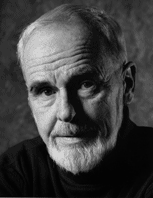Although President Obama had wanted a health care package delivered to him before the congressional recess, I think it was crucial that the House and Senate delayed their judgment. The health care crisis is central to both our economic troubles and our well-being as a national community. As the president said, “We want to do it right.” In addition to the daunting task of reading the proposed bills of both houses, our elected officers would be wise to spend part of their vacation doing some extra homework.
A good place to start is the Mayo Clinic, in Rochester, Minn., one of the more successful providers of quality care with excellent outcomes for patients at lower costs. After hearing the news stories claiming that the clinic did not support Obama’s health plan, it was a relief to find Mayo’s Ray Gibbons, M.D., an eminent cardiologist and strategist at the clinic’s Health Policy Center, talking about the health care crisis on C-Span on July 22.
In an eminently sane and fair discussion, something seldom seen on television or in Congress, Gibbons frequently affirmed that the Mayo Clinic supports Obama’s call for universal coverage. What the clinic, with a number of other prominent medical groups, wants to see in the bill is a reform of the payment system, which now rewards quantity of procedures (even if ineffective and sometimes unwarranted) and neglects quality.
The Mayo Clinic, along with 18 other health system organizations, sent an open letter, titled “Getting Reform Right,” to members of Congress, applauding them and the president for their efforts to reform the system and noting that Medicare now “pays the most to ten states that often provide poorer outcomes, safety and service at higher cost and much less to most of the country, where providers demonstrate generally better outcomes, safety and service at lower cost.”
The present threat to Medicare and to our entire health system is caused by our fixation on quantity rather than value. The problem is that insurance companies want greater volume in profits, lawyers want greater rewards in lawsuits, patients want more procedures, and hospitals want a bigger census for beds occupied. If you make M.R.I. machines, the more you sell the better. If you provide costly M.R.I. technology at your hospital, you want it used. If you have lots of I.C.U. beds, you want them occupied. If these impulses prevail, the health care system, as well as our economy, will collapse.
On the C-Span program Dr. Gibbons, with an openness to which many politicians and ideologues seem averse, advised that all of us “will have to give something.” And yet taxpayers, the wealthy, the poor, the lawyers, the insurance companies and many health care providers appear to be unwilling to give up any of their demands for quantity.
Nonetheless, Dr. Gibbons does not see the situation as futile. Like the “Getting Reform Right” open letter, he recommends that all of us, especially Congress, consider the Medicare Payment Improvement Act sponsored by Representative Ron Kind, Democrat of Wisconsin, and others. A summary of the bill, available on Kind’s Web site under the heading “Quality Affordable Health Care,” highlights not only the issues of coverage, choice and affordability with controlling costs but also the much overlooked issues of shared responsibility, prevention and the key challenge for us to invest nationally in the education of health caregivers. The only addition I would make to this bill is a provision that protects institutions and taxpayers who cannot in conscience pay for or perform abortion and euthanasia.
One of the signers of the letter to Congress is the Dartmouth Institute for Health Policy and Clinical Practice. If you visit their Web site you will find, among other informative offerings, a brilliant five-page summary of the quantity-value problem. Titled “Health Care Spending, Quality and Outcomes,” it provides powerful evidence of the ineffectiveness and waste in the present health care system. Any serious reader should make a hard copy of this document and send it to one’s senators and representative. They have some homework to do.
If our legislators investigate the ways of reforming the payment system and challenging every vested interest—that is, the vested interests of us all—for the sake of the common good, their homework will have paid off for all.









Why does it have to be a Jesuit Philosopher that cuts through the fog and bluster of the last couple of weeks to get to the heart of the issue! I am well aware of The Dartmouth Study on disparities between health care spending and health care outcomes. It should do for health care expenditure systems what the Framingham Study did for cardiology. It should be required reading for every First Year Medical Student.
I am a semi-retired Biomedical Scientist (I still get to abuse 2nd Year Medical Students but I no longer operate a lab) whose specialty is/was Cancer and Infectious Disease. But I am also a patient with the triple curse (Hypertension, Type II Diabetes, Hypercholesterolemia) and a history of males in the kindred dying with heart problems prior to age 60. I belong to an HMO where the emphasis is on prevention. Diet and excercise and seven generic drugs control my blood pressure, downregulate gluconeogenesis and cholesterol biosynthesis and enhance insulin secretion. They kept me alive long enough for me to collect Social Security. Unfortunately the financial incentives the fee for service system do not foster prevention but do pay for triple bypass. You cannot effectively contain costs in the current fee for service environment where Prevention is neglected.